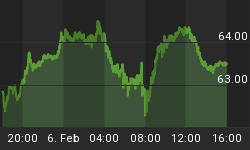
"In the long run, the workman may be as necessary to his master as his master is to him; but the necessity is not so immediate." --Adam Smith, "The Wealth of Nations" (Book 1, Chapter 8)
In recent years, the most conspicuous feature of the financial landscape has been the growing divergence between U.S. labor and corporate profit trends. While household incomes have languished, corporate earnings have soared--despite the most difficult economic cycle in the postwar period. These trends are having a significant impact on current and future equity market index returns.
Bulls and bears may dispute the causes or disagree on forecasts, but everyone will gape at the numbers. From the fourth quarter of 2008 to the second quarter of 2011, real domestic corporate earnings have surged by almost 100 percent while real employee compensation has risen by a mere 3 percent (see Figure 1).

Looking back further, a pattern has become well entrenched--profit recoveries have become increasingly stronger, while labor market rebounds have become progressively weaker. Cumulatively since 1990, profits have risen more than 200 percent while employee compensation has risen just 20 percent (in real terms). Profit margins have also seen a veritable levitation in the last few years, even while the official unemployment rate remains stubbornly over 9 percent. The latest figures show that profits now account for 12.9 percent of national income--the highest proportion ever recorded (see Figure 2). (The previous peak occurred in 1942, when wartime factors created a huge demand for materials, while wage and price controls were imposed by governments).

What gives? Until recent episodes of isolated social upheaval, none of the above has generated instability, much less violence. Instead, they have produced a huge, yawning complacency. Looking ahead, even while income growth is forecast to remain sluggish, the consensus view is that more of the same lies in the future. Analysts are predicting record earnings next year (as we write, 2012 forecasts for S&P 500 bottom-up operating profits currently stand at $112.35 per share, well surpassing the precrisis record of $91.47).
Left Behind: Orphans Of Prosperity
On the surface, the above trends indicate that capital owners have had an extraordinary advantage over workers. Karl Marx foresaw this potential problem. (Not surprisingly, his "workers of the world unite" ideas are witnessing a popular revival.) He argued that an inherently exploitive dynamic exists within the capitalist system, as employers attempt to hire workers for less than their value-add, pocketing the difference in "profit." Of course, his interpretation is blasphemous for die-hard capitalists and has generally been rejected. Such profit is due reward for "risk taking" and "enterprise" (according to Marx, mere euphemisms for "theft").















